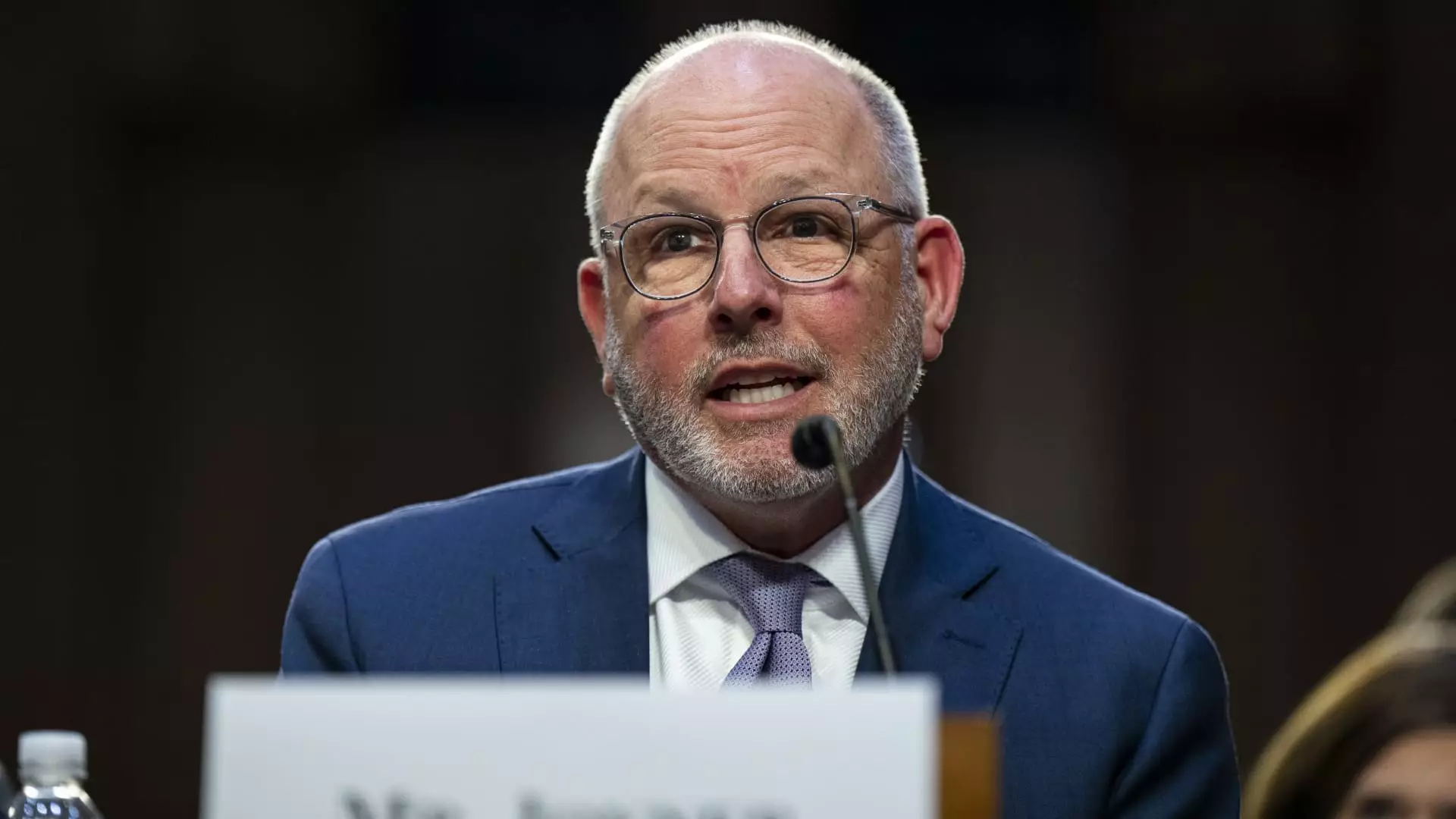In a significant shift for CVS Health, David Joyner has taken over as CEO from Karen Lynch, a move announced amid growing operational difficulties and a notable dip in the company’s stock value. Effective immediately, this leadership transition comes at an opportune moment, marked by a nearly 20% drop in CVS shares earlier this year and an 11% premarket decline on the day of the announcement. The company’s struggles are primarily attributed to increased medical expenses affecting its insurance arm, Aetna, combined with a retail pharmacy sector that is feeling the squeeze from shifting consumer behaviors and reimbursement challenges.
The financial backdrop for CVS is less than desirable, with the company recently cutting its future profit projections for the third consecutive quarter, forecasting a drastic $2 billion in cost reductions over the coming years. On the earnings front, the adjusted expectations for the upcoming third quarter lie between $1.05 to $1.10 per share, reflecting the anticipated rise in medical costs—a trend that is presenting significant challenges for CVS’s Health Care Benefits segment. In essence, this situation calls into question the reliability of previous earnings guidance, urging investors to recalibrate their expectations.
The impending quarterly earnings report, set for November 6, is expected to reveal elevated medical costs, further complicating CVS’s financial landscape. Investors and analysts alike are likely to scrutinize this report for deeper insights into the company’s operational health and strategies to cope with these pressures.
Strategic Shifts and Stakeholder Influence
The leadership shakeup has not gone unnoticed by major stakeholders. Notably, Glenview Capital, a significant investor in CVS, has been pushing for transformative changes within the organization. In light of this shareholder activism, CVS’s board has been exploring various strategic options, including the potential separation of its insurance and retail divisions. However, despite these considerations, the firm has decided to maintain its integrated structure for the time being.
David Joyner, with a deep-rooted understanding of CVS’s business model from his previous roles—most recently managing Caremark, the company’s pharmacy benefits manager—is expected to spearhead efforts to streamline operations and tackle the industry’s challenges head-on. His return to the helm signals a belief in his capacity to provide essential leadership during these tumultuous times, echoing sentiments of commitment to enhancing the company’s competitive edge.
Joyner’s assumption of the CEO role comes at a time of intensifying scrutiny from the federal government regarding pharmacy benefit managers (PBMs) like Caremark. The Federal Trade Commission’s recent lawsuit against major PBMs, including Caremark, highlights the controversial practices potentially inflating patient costs, particularly concerning insulin prices. Such regulatory challenges present a complex landscape for CVS, emphasizing the need for proactive measures to ensure compliance and maintain robust operational practices.
Furthermore, the rising medical costs associated with Medicare Advantage programs, compounded by an increase in patient hospitalizations post-pandemic, add another layer of complexity. CVS leaders have set ambitious goals for margin improvement—between 100 to 200 basis points in their Medicare Advantage segment—but realizing this objective amidst rising costs appears daunting.
Looking Ahead: A New Direction
As CVS Health embarks on this new chapter under Joyner’s leadership, the road ahead is fraught with challenges that require astute navigation. The need for operational efficiencies, effective management of medical costs, and regulatory compliance are daunting tasks that Joyner must tackle promptly. His previous tenure within the company provides him a unique perspective that could potentially lead to innovative solutions tailored to CVS’s specific obstacles.
Moreover, the importance of maintaining transparency with investors and stakeholders cannot be overstated. In a landscape where confidence can easily waver, cultivating trust through consistent communication and demonstrable results will be critical to CVS’s potential resurgence. The forthcoming earnings release, alongside ongoing performance evaluations, will serve as crucial indicators of Joyner’s effectiveness in steering CVS Health through its multifaceted difficulties.
While the challenge is significant, there remains a glimmer of hope that under David Joyner’s leadership, CVS can refine its approach, address immediate concerns, and position itself for long-term sustainability in a rapidly evolving health care environment.

Leave a Reply